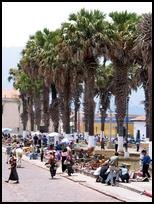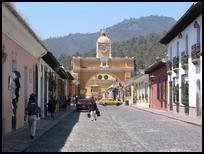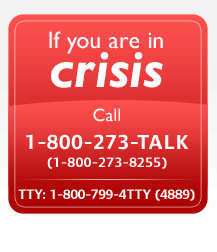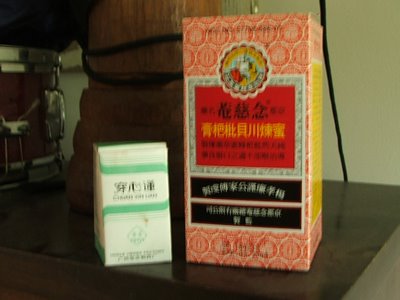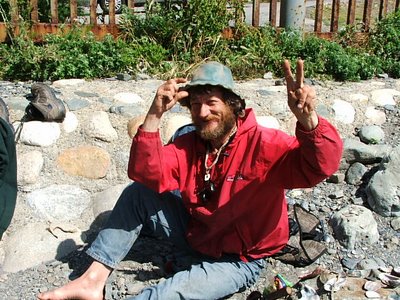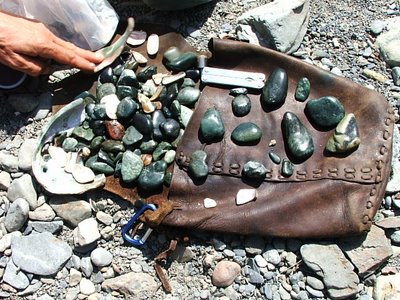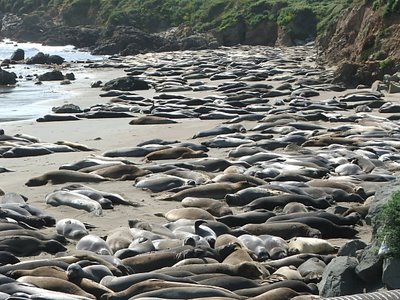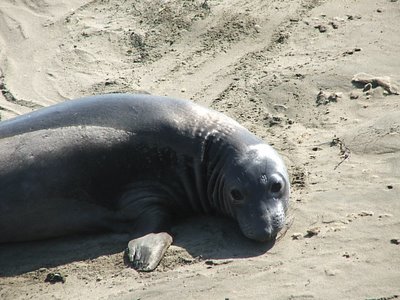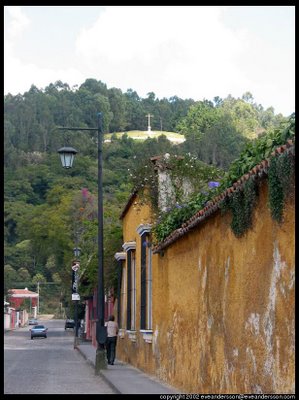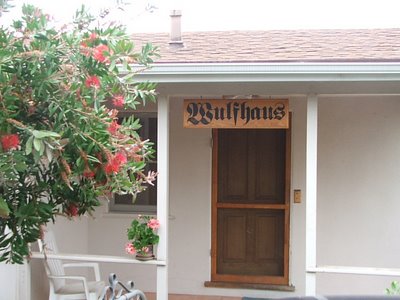
I've been tossing impersonal stuff out onto the page like crazy these past few days mostly so that I can store it for future reference for myself. Tomorrow I'll return to my personal life and thoughts about it. I have a lot to write about. But for now...
For the longest time I couldn't figure out why I always cry when I see
My Own Private Idaho. Now I know why.
Reading
Mia's blog just gave me an idea to gather a list of films involving adoption, so here is a partial list. Some have only sketchy details because I used only info I had at hand. If you have any titles or details to add, please leave in comment box. Thanks.
Antoine Fisher -2003- sailor prone to violent outbursts is sent to a naval psychiatrist for help. Refusing at first to open up, the young man eventually breaks down and reveals a horrific childhood. Through the guidance of his doctor, he confronts his painful past and begins a quest to find the family he never knew.Inspired by a true story
All She Ever Wanted-1996 - The Stockmans are the perfect couple...young, successful, and deeply in love...but they have one problem: They want children. Since Rachelsuffers from severe bi-polar disorder that has to be controlled by lithium, she can't risk getting pregnant. But because of her mental health history, they are bad candidates for adoption. Finally Rachel gives up on the system, and does things her own way...she goes off her drugs and gets pregnant. The ensuing nine months get worse and worse for the young woman, as there are legal battles to end her pregnancy in order to force her back on the drug.
Baby Business-1995 Doc- Increasingly, middle-class families in the developed world who are unable to have children seek to adopt in the Third World where middlemen are making money out of misery and turning international adoption into a trafficking operation in babies. In El Salvador, women tell how soldiers snatched their babies from their arms during the civil war, babies who were later adopted abroad. In Central America, stolen children are kept in illegal nurseries and women are paid to act as mothers, giving them up for adoption. Also shown is the situation of the man in Mississippi, the natural father of a baby who was given up for adoption without his consent. Nevertheless, elimination of the middlemen allows humanitarian programs such as the one in Haiti, under which two British Columbian families adopt babies from unfortunate families seeking a secure future for their children.
The Baby Maker-1970 - Tish Gray had a baby and gave it up for adoption. She is contacted by a second childless couple who want her to have the husband's baby because of the wife's inability to have children. She accepts but finds that knowing the parents, and developing a relationship with them for the entire pregnancy complicates the simple arrangement. OK treatment for an early exploration of open adoption/surrogacy.
Baby M-1988 - famous surrogate mother story.
Batman Returns-1992- An abandoned child returns as an adult and searches for his parents.
Black Market Baby-1977 pregnant college student fights a baby selling ring.
Border Line-1991 -Attorney who represents an international adoption agency in Los Angeles accidentally discovers a murder involving the agency. She then gets mixed up in an illegal operation involving Asian mothers who are forced to give up their babies. Working with a private detective and an immigration officer she eventually finds the truth.
Boulevard-1994 -A young woman regularly beaten and tortured by her lover, gives birth and immediately gives the child up for adoption. This sets her on an escape from the lover on the streets of Toronto. Here she meets a hardened hooker who takes her in so she won't be arrested for vagrancy.
Broken Flowers - 2005
- devoutly single man is dumped by his latest girlfriend then receives a anonymous pink letter informing him that he has a son who may be looking for him. The situation causes him to examine his relationships with women instead of moving on to the next one, and he embarks on a cross-country search for his old flames who might possess clues to the mystery at hand.
The Child (L'enfant) 1995 -Bruno and Sonia, a young couple living off her benefit and the thefts committed by his gang, have a new source of money: their newborn son. Birth mother discovers boyfriend sold their baby on black market.
A Child Lost Forever-1995 Birthmother searches for her child and discovers the adoptive mother murdered him years earlier. Flashback to her life at a reform school. Based on a true story.
Cradle of Conspiracy-1994 daughter of upper middle class parents, can hardly stand the immense pressure to fullfil her mother's dream of success in sports and high school. In this tense situation she gets emotional support by Kenny, who secretly plans to make her pregnant and sell the baby for adoption. After a true story.
Ca-bau-kan-2002 -A women from Holland returns to Indonesia, the country of her roots. When she was a little child she was given up for adoption and now she is ready to discover the story of her life. She finds out that the truth about both her parents is very revealing, shocking at times, but comes to terms with her past.
Cider House Rules -1999- Not about adoption per se, but shows what it means to be alone in the world without biological family. A compassionate young man, raised in an orphanage and trained to be a doctor there, decides to leave to see the world.
Daddy and Papa -2002 doc - explores the growing phenomenon of gay fatherhood and its impact on American culture. Through the stories of four different families, Daddy & Papa delves into some of the particular challenges facing gay men who decide to become dads. From surrogacy and interracial adoption, to the complexities of gay divorce, to the battle for full legal status as parents.
Danielle Steel’s Mixed Blessings-1995-Three newly married couples want to start a family. However, there are a few complications, for Brad & Pilar, it's time, not only are they both very mature, Brad already has grown up daughter and is about to have a baby of her own. For Andy & Diana, it would be difficult for her to conceive, so they explore other options, like surrogacy and adoption. And for Charlie and Beth, it's the fact that he wants to be a father but she is not sure if she wants to.
Danielle Steel’s No Greater Love-1996 -young infant is put up for adoption after her parents went down with the Titanic in 1912. Nearly 50 years later, now a grown woman she looks for her other siblings who she believed survived after the Titanic went down.
The Daughter from Danang - doc- about reunion between Vietnamese born adoptee and her birth family.
Dear Jesse-1997-Can you go home again? What if you're a gay man and home is a state where voters keep electing a homophobe to the US Senate? In 1996, at age 30, native son Tim Kirkman returns to North Carolina to explore the parallels and differences between himself and Jesse Helms: they're from the same town and college, with media interests, from families blessed by adoptions, Baptists by upbringing. Tim puts his camera in front of his family, a boyhood pal, college friends, his pastor, Helms fans, community activists, novelists Lee Smith and Allan Gurganus, a mayor who's gay, and people in the street, including a brief interview with Matthew Shepard. What is it to judge, and what is it to love?
Den Eneste ene-1999- follows two couples in Copenhagen trying to settle down. Søs, who works in a beauty clinic, tries to live happily with her Italian husband. Soon after she tells him that she's pregnant, she discovers that he's having an affair with one of her clients at the beauty clinic. She kicks him out of the apartment just as their new kitchen arrives. Niller, the kitchen installer, is a down-to-earth kind of guy who lives a childless, but otherwise happy life with Lizzie. They're busy preparing for a child adoption, only one event will have a huge impact on both their lives just as the newly adopted girl shows up from Burkina Fasu. At the same time Niller falls head-over-heels in love with Søs.
DMC: My Adoption Journey - doc - famous hip-hop/rap musician who searches for his birth mother.
El Milagro de P. Tinto-1998- Wafer factory-owner P. Tinto and his wife Olivia want a child of their own more than anything else in the world. Years of trying, however, have left them with nothing but a pair of extraterrestrial midgets living in the spare bedroom. When they decide to try adoption, a series of misroutings and chance encounters results in an escaped adult mental patient arriving at their door with adoption papers in hand. P. Tinto and Olivia accept this without question and welcome him in as their son. Can this family arrangement work?
Empire of the Sun-1989 -An aristocratic British youth is separated from his family at the start of World War II after the Japanese Army invades British controlled areas of China. Reduced to living on the street and fighting for food, the youth is eventually interned in a Japanese POW camp for British civilians. Here, admiration quickly develops both for captured American pilots and the Japanese themselves. When the war ends, the boy torn from everything he knew attempts to again find his parents. Directed by Steven Spielberg. While not about adoption, it does cover separation and loss in a child.
Family Plot-1976 -Fake medium Madam Blanche and her taxi driver boyfriend make a living from her phony powers. They are hired by an aging widow, Julia Rainbird to find her nephew who was given away for adoption many years earlier following a family scandal. Meanwhile, an extremely clever couple are behind a series of kidnappings in the San Francisco area. The two couples path's cross and chaos results in Alfred Hitchcock's last film.
A Family Thing-1996 -Bowlegged cracker, Earl Pilcher Jr., runs an equipment rental outfit in Arkansas, lives with his wife and kids and parents, and rarely takes off his gimme cap. His mother dies, leaving a letter explaining he's not her natural son, but the son of a Black woman who died in childbirth; plus, he has a half brother Ray, in Chicago, she wants him to visit. Earl makes the trip, initially receiving a cold welcome from Ray and Ray's son, Virgil. His birth mother's sister, Aunt T., an aged and blind matriarch, takes Earl in tow and insists that the family open up to him.
A Father for Brittany AKA A Change of Heart-1998 -Australia Keith and Kim Lussier are a childless couple who are given custody of a 3-month-old foster child, Brittany. However, tragedy strikes when Kim dies of cancer in the middle of the adoption process, leaving Keith to fight for Brittany's custody alone.
First Person Plural-Deann Borshay Liem was adopted by an American family and was sent from Korea to her new home. Growing up in California, the memory of her birth family was nearly obliterated until recurring dreams lead Borshay Liem to discover the truth: her Korean mother was very much alive. Essay on family, loss, and the reconciling of two identities.
Flirting with Disaster-1995 -Farce about an adoptee searching for his birthmother.
Follow Me, Boys-1966- Disney vehicle about a Scout leader in a small town.
Footballers Wives-2002- Drama series about the women married to members of Earls Park football team. Ian gets offered a place on the first team, while his wife Donna tries to track down the son they gave up for adoption nine years ago.
For Keeps-1988 -Darcy and her long-term boyfriend Stan are in their last months of school and already have found places in good colleges. Recently they started to sleep with each other and Darcy gets pregnant. Neither Darcy's mother, who was left by her husband and had to bring up Darcy alone, nor Stan's Catholic parents are very supportive and urge them to have an abortion or give up for adoption respectively. However Darcy's and Stan's love is so intense, they could imagine to have a baby, but this would mean to give up their college carriers.
Gas Station Jesus-2001 -When a young woman opts to abort a miraculous conception, a Christian Fundamentalist group intervenes. Duped into an adoption scheme, Maggie agrees to carry the baby to term but gradually comes to suspect the entire arrangement. She ends up marooned at a rural service station, where she encounters a wise old radio preacher, Isaiah, and his reluctant prophet of a son, Manny, who end up guiding her on the rest of her journey. It's not an easy journey, however, as Maggie is stalked, chased and forced off the road. In a woodsy field, she comes face to face with her assailants and herself, as she prepares to undergo a painfully unorthodox delivery and yet another unforeseen miracle...
High Tide-1987- A birthmother is stranded in an Australian trailer park only to discover her relinquished daughter.
Immediate Family-1989 A wealthy, childless couple enters into an open adoption.
Jack Be Nimble-1993 -Jack and Dora, abandoned by their parents as babies, are desperate to find each other after years of adoption. Jack's young life has been spent with a sadistic family. Dora, whose life has been somewhat better, has developed extra-sensory powers which tell her that Jack's in danger and drives her to search for him.
Katts and Dog-1988-91 -"Katts and Dog", otherwise known as "Rin Tin Tin K-9 Cop", is about the life of Canine Officer Hank Katts and his partner, Rinty; how they fight crime and the forces of evil. It also shows the life of Hank's nephew, Steve; through the death of his mother and his adoption by Officer Katts.
The King- 2005 - troubled man, recently discharged from the Navy, goes to Corpus Christi, Texas, in search of the father he's never met-revenge by adoptee on birth father.
Lazurus-1994 - drama set in England and filmed entirely in English, concerns a wealthy British couple of Polish descent who adopt a son because they are unable to have children. However the illegal adoption process they go through involves paying an exorbitant fee to an underground broker, and the child they receive is not the Latin American infant promised, but a strangely hardened 10-year-old from Mozambique. Desperately disappointed with their "purchase," the new parents nonetheless make fumbling efforts to make the child Lazar feel at home. But Lazar is not receptive, and behaves more like a threatened and hunted animal each day in his affluent surroundings. In time, the couple are able to communicate with the boy to discover
that he saw his family die and was forced to accompany the army, where along with other children he was trained to execute prisoners in mass killings. Lazar ultimately develops the will to try to become a child again, but he feels constantly endangered by the wealthy new world around him. One day he runs away, stealing a weapon from his favorite new grandfather. When police rounds up of him, it looks like the boy tries to defend himself.
Les Cigognes n’en font qu’a leaur tete-1989 -Married to Jeremie, Marie wants desperately to have a child. She has a 20 year old daughter from a former marriage with the police commissioner. When the gynecologist confirms they are unable to conceive a child together, they opt for adoption. However, it is a very lengthy and difficult process. When her daughter meets Joanna, a pregnant teenager willing to give up her child for adoption, Marie is thrilled. And so Joanna moves in...
Little Girl Lost-1988 -Based on a true story, The Brady family fight to adopt a little girl they fostered. But then social welfare decide to send Tella back to her natural father, who it is apparent is sexually and physically abusing her. The Bradys fight to get her back.
Little John-2002- unmarried daughter of a Texas rancher gives birth to an unwanted child. She puts the child up for adoption and moves away from home. Without her knowledge, her father took the boy and raised him. Twelve years later, she is now a successful family-court judge in L.A. Over the years, she has avoided her father and knows nothing of the child. That all changes when he decides that is time she knew her own child and heads for L.A. However, he quickly finds that she wants nothing to do with her father and cares little about the son she never knew.
Loggerheads-2005-about adoption rights, inspired by true events. It highlights three triad stories and interweaves each story in the days leading up to Mother's Day weekend.
Losing Isaiah-1995 -White adoptive mother and black birthmother fight over her abandoned child.
The Lost Child-2000- story about Rebecca, a woman who goes in search of her natural parents and in the process finds her long lost family and her rich cultural heritage. Her adoption was never kept a secret from her while she grew up in a loving adoptive family. But her circumstances are drastically changed when her adoptive mother passes away and her father's new wife shows no interest in his child. Then, years later, after her father dies, Rebecca decides to try to find the family her dad had described to her. In response to her search, she is contacted by a woman on a Navajo reservation who is looking for her twin siblings who were stolen from their mother soon after they were born. The women soon realize that they are sisters and Rebecca is welcomed with open arms on a visit to the reservation. But when her husband, Jack, comes to see them, the differences between the two cultures rise to the surface, and Rebecca must integrate the old and the new so that her whole family can be together happily.
Made in China: The Story of Adopted Children from China-2000 -Made in China tells the stories of adopted children from China, predominantly girls, who live in three distinct regions of Canada. Many of the children live with white families and face the challenge of making sense of their identity and their roots at a very young age. We meet the children in their homes, social settings and schools. They explain how they deal with issues of race, racism, abandonment and adoption, birth parents and whether they will return to China to search for their roots. Their stories reflect their inner conflicts and how they have come to terms with their hybrid identities. Sometimes tough, sometimes vulnerable, the children reveal the joys and pain of living in a visibly adoptive family.
The Magdalene Sisters- 2002-drama charting several years in the young lives of four "fallen women" who were rejected by their families and abandoned to the mercy of the Catholic Church in 1960's Ireland. Triumphant story of three women who found the courage to defy a century of injustice.
Marvin and Tige-1983- Old man and orphan are thrown together to find the child’s birthfather.
Measurable Rights-doc story of Helen Hill and adoptee rights group Bastard Nation who used Oregon's Ballot Measure 58 to open sealed birth certificates for adult adoptees. Daughter from Danang-drama of longing, identity, and the personal legacy of war.
The Miracle-1991 -Genetic Sexual Attraction occurs when a male adoptee meets and actress who turns out to be his birthmother.
Mighty Aphrodite-1995 -Adoptive father searches for his child’s prostitute birthmother.
Mommie Dearest-1981- The adopted family life of Joan Crawford; several of her adopted children where stolen by the Tennessee Children’s Home.
Mon Amie Max-1994 -concert pianist is surprised one night by the arrival of her best friend from childhood, Marie-Alexandrine (Max), whom she hasn't seen for 25 years. Catherine and Max were Québec's most promising young pianists in the mid-1960's when the adventurous Max gets pregnant. She wants to keep the child, but her mother forces her to give him up for adoption; afterwards, Max leaves Québec and music. Now, years later, she returns, obsessed with finding her son. She locates the adoption records, and social services contacts her son to ask if he wants to see her. He refuses, but she keeps trying. Is a relationship with him possible? And what about her musical talent?
My Own Private Idaho-1992 -Two teenagers search for the birthmother of one of them.
Next of Kin-1984 -Twenty-three-year old Peter Foster is an only child who lives at home, where he constantly hears his parents arguing. Because Peter does nothing all day, the family goes to a clinic where a therapist videotapes them. After Peter watches his tape, he views the tape of a troubled Armenian family, who gave their only son away for adoption when they arrived in Canada. Peter decides to visit this family, and he pretends to be their son, Bedros Deryan. The Deryan family welcomes him with open arms, and Peter tries to patch up the poor relationship between George Deryan and his daughter Azah.
Niedzielne dzieci aka Sunday Children-1977-(Polish) middle-aged pair of newlyweds is still without a child after two years of marriage. It's an embarassment so they decide to adopt a child. This takes time, however, and they cannot wait. The solution is to fake a pregnancy and make a deal with a young girl expecting an illegitimate child, who in turn does not want give the baby up to the adoption home. The deal is made, pregnancy faked and then the middle aged wife suddenly finds herself pregnant. Now the deal is off and the young expecting mother is facing a new decision. She does keep the baby in the end.
Nobody’s Fool-1986- young birthmother tries to make the best of her life after relinquishment.
The Official Story - 1985-Argentinian adoptive mother who searches for the birth mother.
Oranges Are Not the Only Fruit-1991 -adopted girl, raised by religious fanatics, realizes she is a lesbian.
Orphan Train-1979 -treatment of Dorothea Petrie’s novel about the trains that transported New York City street urchins into the American West.
The Other Mother-1995- adaptation of Carol Schaeffer’s book about her relinquishment and subsequent search.
Our Son, the Matchmaker-1996- story of 43-year-old Julie a beautician who when 15 was forced by her mother to give up her baby for adoption. Her son, now 28, a minister, with his wife expecting, begins to search for his biological mother to find out his family medical history. She hears of his search and reunites.
Problem Child & Problem Child 2-1990/91- Awful pair of films about troublesome adoptees. Also reported but unseen: Problem Child 3, 1995.
Rat Race - 2001-reunion between first mother and daughter.
Reno Finds Her Mom-1998-first person account of Reno's, an adoptee living in New York City, search and discovery of her birthmother in Southern Califonia.
Samantha-1993- an adoptee’s search after she’s told she is adopted on her 21st birthday. Not for all tastes; the reunion is very strange!
Second Best-1994 -Lonely, middle-aged man in England adopts a lonely teen. Tremendous performance by William Hurt as the adoptive single father.
Secrets and Lies-1996-story of an English adoptee reuniting with her birthmother and birthfamily.
Seetha & Carole-1998 -story of a tug of war between two women, one Canadian, the other East Indian, over the same child. A Canadian woman, who has suffered two miscarriages, decides to adopt a child in India. The child she selects was sold to an adoption agency by his impoverished father who hopes adopted parents will give the child a better life in America. The problem is that the child's mother knows nothing of the plan. When she does find out, she wants the child back.
The Shipping News-2001- inksetter in New York, Quoyle returns to his family's longtime home, a small fishing town in Newfoundland, with his young daughter, after a traumatizing experience with her mother, Petal, who sold her to an illegal adoption agency. Though Quoyle has had little success thus far in life, his shipping news column in the newspaper "The Gammy Bird" finds an audience, and his experiences in the town change his life.
Sioux City aka Ultimate Revenge-1994- doctor who gets suspended on his birthday. At his adopted parents home, he has a party at which one of the gifts is an American Indian necklace with a note from his birth mother who he has not heard from since he was given up for adoption when he was very young. In the note she wishes to see him. So he leaves to visit her only to arrive a few days after her death. He visits the local sheriff because he is curious of the circumstances of his mother's death. He then heads out to the reservation in search of any relatives he may have. He runs into his grandfather who is kind of a witch doctor. On the way back to town he is attacked by some of the sheriff's men who try to kill him. They leave him for dead, but he is rescued. He then decides to perform an Indian ritual where he hallucinates or has visions to try to identify why he was attacked. He has visions and discovers the reason he was given up for adoption was because his father was the local sheriff. He didn't love the birthmother and ordered her to give him up for adoption...
The Sleepy Time Gal -2001-Frances had been a radio DJ in Florida; she's now living in San Francisco and dying of cancer, with one son living nearby whose work as a photographer is beginning to take off and another, mostly estranged, living in London. She makes a trip to rural Pennsylvania to visit an old lover (and his wife). Meanwhile, Rebecca is searching for her birth mother, who is, of course, Frances. Their lives intersect in other unexpected ways as her search and her work, inspecting the books of radio stations being acquired, progress.
Smoke Signals - 1998 -Native American man embarks on journey to collect the ashes of his father who'd abandoned him.
Snow Dogs - 2002-Miami dentist is about to get thrown into a whole new world when he receives word of a reading of a will. Ted, who is in his 30's, had no idea he was adopted and now he has discovered that his birth mom has recently died and left him.
her estate.
Soapdish-1991- Genetic Sexual Attraction occurs on a soap opera set between a birthfather and a daughter he is unaware of.
Star Wars -Episode 4; A New Hope-1977, Episode 5; The Empire Strikes Back-1980-Episode 6; Return of the Jedi-1983 -Trilogy of films about two adoptees searching for their birthfather. Luckily, not all birthfathers turn out to be Darth Vader.
Stolen Babies-1993- Social worker exposes the Tennessee Children’s Home Scandal.
Stranger Who Looks Like Me-1974- first TV movie about adoptees searching.
Superman-1978 -The first interplanetary adoption.
Tatsulok-1998 -Minda, in her forties, is having a torrid affair with the younger Dave, and is trying to hide it from her husband Chito. One day Stephanie, a Philippino-American who came to the Philippines on a cultural discovery tour, turns up at Minda's house claiming she is her daughter, whom she gave away for adoption twenty years earlier. Stephanie has questions about her adoption that Minda is unwilling to answer.
Terror in the Shadows-1995- Christine went after the baby she gave up for adoption, claiming he'd been stolen, and wound up killing Alex Williams' wife and the baby the Williams' had adopted. Now, Alex has remarried to a woman with a young son and when Christine escapes from a mental institution, she heads straight for Alex, looking for revenge.
Their Second Chance aka The Keller/Keller Story -1997 -Twenty eight years ago, Barbara and Larry were college lovers and Laurie was conceived. They were unmarried, young and afraid and decided to put her up for adoption. She now returns to their lives and through persistence, re-unites them.
Thief-1981 - highly skilled jewel thief operates a resturaunt and a car dealership as covers for his illicitly-gained income. He falls for a woman he meets out on the town and gets hired by the local godfather to pull a few heists. In return, the mob arranges a steady flow of cash and a black-market adoption for Frank and his girlfriend. When Frank tries to quit the mob, various bad things happen to illustrate the point that he can't quit.
Thursday-1998- former L.A. drug dealer has moved to Houston to make a new life for himself as a married architect. Everything falls apart when he is suddenly visited by one of his former cohorts who comes carrying heroin. Discovering the dope, the architect flushes it down the drain. Michael Jeter also appears as a psychologist from an adoption agency where the couple is seeking to adopt a child.
The Tie That Binds-1995 -John and his wife Leann are fugitives who are both wanted for murder. They have a young daughter named Janie. John and Leann are in the process of robbing a house when the two residents of the house show up. John kills the two residents and heads back to the car with Leann - only to discover the police waiting for them. John and Leann get away after a cop shoots John, and Janie is placed up for adoption. Janie is soon adopted by southern California carpenter Russell Clifton and his wife Dana - and what they don't know is that they're in for the fight of their lives. John and Leann are trying to locate Janie and will stop at nothing to find her, even if it means killing whoever is in their way.
To Find My Son-1980- Single man experiences difficulty when he tries to adopt an 8 year-old boy.
Track 29-1988 -doctor's wife tires of his obsession with model trains, and spends her days wondering about the son she gave up for adoption at birth. While eating at a roadside cafe, she encounters a British hitchhiker, who turns out to be her son. They spend time together trying to find a bond. The son begins to hate the husband, and the wife begins worrying about the safety of her husband.
Twins-1988 -Julius and Vincent Benedict are the results of an experiment that would allow for the perfect child. Julius was planned and grows to athletic proportions. Vincent is an accident and is somewhat smaller in stature. Vincent is placed in an orphanage while Julius is taken to a south seas island and raised by philosophers. Vincent becomes the ultimate low life and is about to be killed by loan sharks when Julius discovers that he has a brother and begins looking for him. Together, they search for their birthmother. I loved it when Arnold confronts the doctor that caused it all; “If you’re lying to me, I’ll be back.” Later, the birthmother punches out the doctor.
Two Family House-2000 -unseen narrator looks back to 1956, on Staten Island, when Buddy, an Italian guy with big dreams, buys a house planning to live upstairs with his wife Estelle and run a bar downstairs. The first problem is Estelle's lack of confidence in Buddy. Then, Irish tenants upstairs refuse to move and won't pay rent; plus, the woman upstairs is about to have a baby. The next problem is the baby: once he's born, it's clear his father was Black. The Irish guy splits; Buddy evicts mother and child, then feels guilt and sets her up in a flat while she sorts out an adoption. Estelle's lack of faith, the Irish lass's spirit, Buddy's dream, racial prejudice, and the baby's fate play out.
Unlocking the Heart of Adoption-doc that bridges gap between birth and adoptive families through diverse personal stories of adult adoptees, birthparents and adoptive parents in both same race and transracial adoptions.
Wong Fei-hung ji yi: Naam yi dong ji keung-1992- Martial arts expert Wong Fei-Hung faces Kung, a mercenary rival with skills to equal his own. In addition, Canton is convulsed by a struggle between the local representatives of the Chinese governmentand Europeans who want to control China, and Wong ends up in the middle of this fight. He is again assisted by young Chung, and again must protect Aunt Yee, his young, Westernized aunt-by-adoption with whom Wong has fallen in love.
Wong Fei-hung tsi sam: Siwong tsangba-1993-Wong Fei-Hung and sidekick Chung arrive in Peking just as the Empress announces a Lion Dance martial arts contest. Also accompanying him is Aunt Yee, his young, Westernized aunt-by-adoption, to whom Wong is secretly betrothed. Wong faces a possible romantic rival in a Russian diplomat, Tumanovsky, whom Aunt Yee knew back in school.
CLASSICS:Blossoms in the Dust (1941) - The Edna Mae Gladney Story on film; she is one of the reasons adoption records were sealed, to “protect” adoptees from the bastard label. she remained a staunch supporter of sealed records.
Curly Top (1935) - Bachelor millionaire, orphaned youngsters, love, romance and lots of song and dance. Happily ever after with Shirley Temple.
Inn of the Sixth HappinessI (1958)-story of Gladys Aylward, adoptive parent and missionary in China.
Men of Boys Town (1941)- Spencer Tracy as Father Flanigan in Boys Town.
Anne of Green Gables (1934) - tale of orphan being adopted by a brother and sister to help on a farm in Nova Scotia. Superior 1985 remake starring Megan Follows, Coleen Dewhurst, and Richard Farnsworth was followed by a sequel in 1987 called Anne of Avonlea. Followed by a Disney TV series and a sequel film in 2000.
Bachelor Mother (1939)--woman becomes the guardian for an abandoned baby.
The Bad Seed (1956) -Sweet looking 8 year old girl is a liar and a murderess; her adoptee mother finds out the truth and tries to commit suicide. Remade as a 1985 TV movie.
The Bigamist (1953) -Harry and Eve Graham are trying to adopt a baby. The head of the agency senses Harry is keeping a secret and does some investigating. He soon discovers Harry has done an unusual amount of traveling from his home in San Francisco to Los Angeles. Harry gets tracked down in LA where he has a second wife and a baby. Via flashbacks, Harry tells the adoption agent how he ended up in two marriages.
The Big City (1948) -girl adopted by three men.
Delinquent Parents (1938) -Rich boy marries poor girl. Poor girl gets pregnant. Rich boy's parents don't know they're married, forbid him to see her anymore. Rich boy dumps poor girl, poor girl gives baby up for adoption. Rich boy and his family are happy, poor girl and her family are miserable.
The Divided Heart (1954) -Yugoslavian woman finds that her child, lost during World War II, has been adopted by a German family.
Frisco Jenny (1932) -Frisco Jenny was orphaned by the 1906 earthquake and fire and has become the madame of prosperous bawdy house. She puts her son up for adoption and he rises to prominence as district attorney dedicated to closing down such houses. When her underling proposes killing the DA, she kills the underling and must face execution.
Here Comes the Groom (1951) -foreign correspondent, has been running an impromptu adoption agency for war orphans in Paris, when an ultimatum from his erstwhile fiancée draws him back to Boston, complete with two adopted orphans to melt her heart. Too late! She's now engaged and if Pete's not married within five days, he loses the kids.
Kiddie Kure (1940) -Rich 'Old Man' Morton is a hypochondriac. The doctor suggests to Morton's wife that adopting a child mighthelp cure Mr. Morton of his delusions. Overhearing the conversation, Morton invites the the Our Gang to lunch in order to sour his wife on children and adoption.
The Lady is Willing (1942) -Broadway performer Lisa Madden befuddles her handlers by coming home with a baby she picked up on the street. She wants to keep the baby but has to find a husband to make adoption viable. Why not her new obstetrician Dr.McBain? She offers him help with his research on rabbits in exchange for marriage - and he accepts. The marriage of convenience turns into a marriage of real love. When Dr. McBain's ex-wife comes looking for money, Lisa suspects something and leaves New York. However, a serious illness with the baby brings them together again as McBain operates to try and save the baby's life.
Penny Serenade (1941) -Courtship, marriage, and the loss of two children, one who was adopted, is recollected by a divorcing women.
Prelude to Fame (1950) -While vacationing in Italy, Nick Morell, son of John Morell, a famous English philosopher and amateur musician and his wife Catherine, becomes friendly with young Guido, and Morell discovers the boy has an extraordinary instinct for orchestration and a phenomenal music memory. A neighboring couple, Signor and Signora Boudini become aware of the boy's talents, and she appeals to his parents to let her educate him musically. Torn by their love for their son and, they feel,the duty to let the world hear his talent, they consent. The boy is tutored by Dr. Lorenzo, Signora Bondini denies the boy all contact with his parents and everyone else except her. She also has neither sent his letters to his family, nor let him see the ones they've sent to him. He becomes phenomenally successful and makes the grand tour of Europe as Signora Bondini is enraptured by the acclaim given her through her "discovery" of the boy. She prepares to take him to America and also prepares adoption papers.
Room for One More (1952) -Family of five adopts a little girl. AKA as The Easy Way; later a TV series.
The Search (1948) -American GI in post-WW2 Europe helps a boy find his mother.
The Ten Commandments (1956) Adoptee searches for his past and leads his people to freedom.
Three Secrets (1949) -A five-year-old boy is the sole survivor of a devastating plane crash in the mountains of California. When the newspapers reveal the boy was adopted and that the crash occurred on his birthday, three women begin to ponder if it's the son each gave up for adoption. As the three await news of his rescue at a mountain cabin, they recall incidents from five years earlier and why they were forced to give up their son. Remade as a TV movie in 1999.
To Each His Own (1946) -During World War 1, small-town girl Josephine Norris has an illegitimate son by an itinerant pilot. After a scheme to adopt him ends up giving him to another family, she devotes her life to loving him from afar.
The Tunnel of Love (1958) -a married couple trying to adopt a child.
Women in Hiding (1940) -This Crime Does Not Pay series 22 minute short focuses on unwed mothers, specifically those who believe that they cannot confide in anyone and, therefore, go to clinics run by people more interested in profit than proper medical care. In this dramatization, women pay $500 to enter a clinic and must sign papers in which they agree to give up their babies for adoption. Childless couples then pay the clinic operators $500 to adopt the children.
White Banners (1938) -homeless woman named Hannah drifts into the lives of the kindly Ward family, in a small Indiana town in 1919. Hannah makes herself useful as a cook and housekeeper and stays with the Wards... but her real interest is in meeting their neighbor, teenager Peter Trimble. It turns out that Peter is the son she bore out of wedlock and gave up for adoption, and now Hannah has returned to town to see what sort of young man her son has become.
 Dark Toblerone, from Switzerland, is my favorite chocolate bar in the whole world! Mmmmm. Yummmmmmy.
Dark Toblerone, from Switzerland, is my favorite chocolate bar in the whole world! Mmmmm. Yummmmmmy.